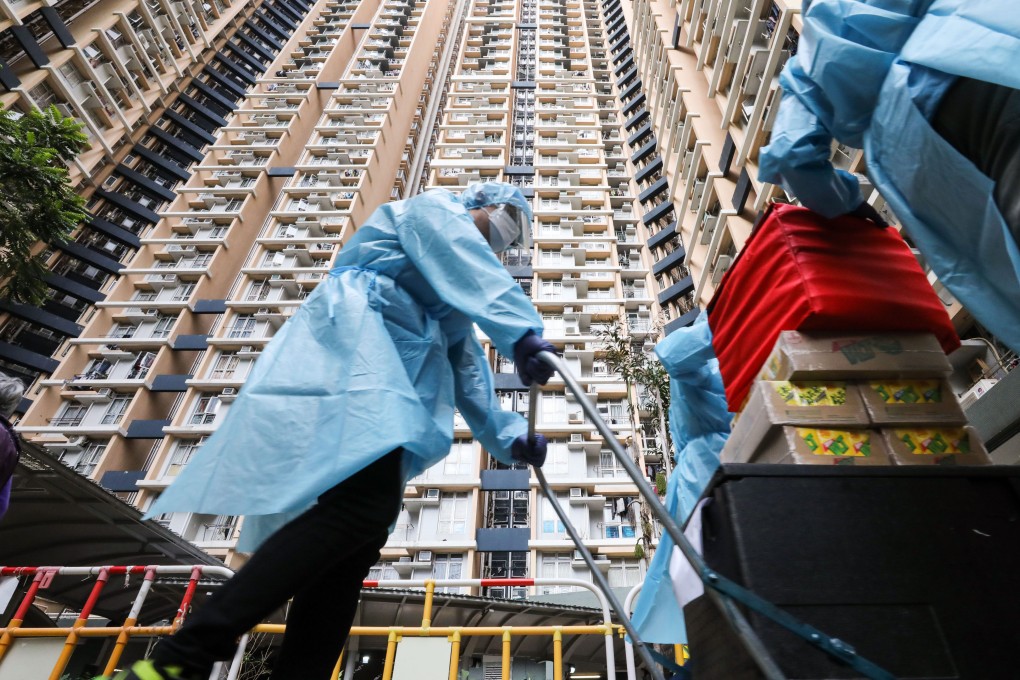Advertisement
Coronavirus: Hong Kong eases quarantine rules for arrivals while extending social-distancing measures as daily caseload hits record 164
- Authorities on guard for possible exponential increase in cases that could give rise to ‘massive, massive community outbreak’, leader says
- Officials unable to find source of dozen community infections recorded across various neighbourhoods
Reading Time:5 minutes
Why you can trust SCMP
99+

Key points:
– Hong Kong breaks daily caseload record, with 164 new infections
–From February 5, incoming travellers currently subject to 21 days of hotel quarantine will instead be required to spend 14 days in isolation and seven days self-monitoring
– Stringent social-distancing rules will last for two more weeks to February 17
– In-person classes will remain suspended until February 21
– Vaccine bubble to be renamed ‘vaccine pass’ and cover more premises
Hong Kong authorities announced on Thursday that mandatory quarantine for arrivals from overseas would be reduced from three weeks to 14 days because of the shorter incubation period of the highly transmissible Omicron variant, even as the daily number of Covid-19 infections surged to a record high of 164.
Advertisement
Select Voice
Choose your listening speed
Get through articles 2-3x faster
1.1x
220 WPM
Slow
Normal
Fast
1.1x